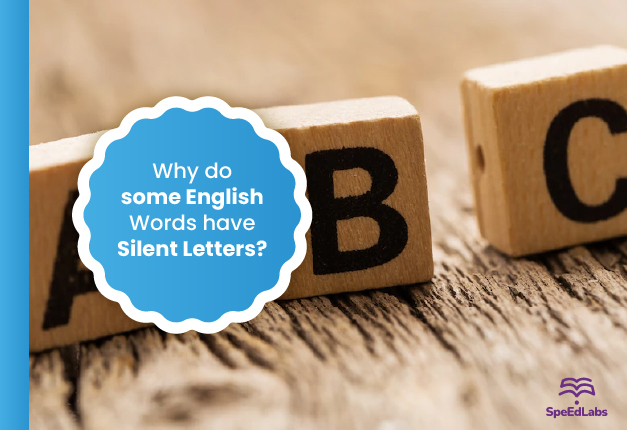Have you ever attempted to spell a difficult word in English? For those who succeed in correctly spelling the words, there are a lot of contests and grand prizes. The existence of silent letters is one of the main causes of the English language’s complexity.
The use of silent letters in the English language is well known. In actuality, a silent letter appears in about 60% of English words. However, these frequently upsetting words were not meant to be so perplexing.
Were there Silent Letters from the very beginning?
In many cases, these silent letters were pronounced, such as when “knight,” sounded like “kniht” or “bite” sounded like “beetuh.” During the Middle Ages, the English language was rocked by the Great Vowel Shift, a major phonetic change that affected how long vowels were spoken. These changes occurred over several centuries and eventually led to modern English pronunciations with little or no spelling changes. Of course, this makes writing these words correctly even more difficult, so use these spelling rules you should have memorised to help you get them down pat.
Differentiating between Words
Some of these changes are marked by the infamous silent “e,” which transforms “rid” into a completely different word than “ride.” This usage transforms “e” into a diacritic letter, one that is unpronounced but alters the pronunciation of another syllable.
In other languages’ silent letters are used in other words. For example, “tsunami” is a Japanese word, and “psychology” is derived from the Greek words “psyche” (spirit or soul) and “logica” (logic) (meaning the study of something). However, because the consonant combinations “ts” and “ps” are not used to begin words in English, the first letters became silent to comply with the language’s phonological rules.
Foreign Influences
Several factors caused these silent letters, but ego was another. For no other reason than they could, some individuals who had a say in how the English language would develop added extra letters. England had a large Dutch and German population of printers who ran printing presses. Because they had control over a language that was still developing as a standard, they added extra letters to make the words resemble those from their native countries. Similar to this, scholars added the silent “b” to “doubt” to inform the (what they believed to be) uninformed public about the word’s origins from the Latin “dubitare.” They merely changed “dout” to “doubt” when no one requested the extra consonant, in reality.
Distinguishing the Words which Sound the Same
In the English language, there are instances where words have silent letters added to them specifically so that they can be distinguished on paper from other words with similar sounds (homophones). To distinguish the word “inn” from the preposition “in,” an additional “n” has been added. In a similar vein, consider the cases of “bee” and “be.” In some cases, letters indicated which consonants in the word the reader should emphasise. For instance, the letter “fe” in the word “giraffe” suggests that the second half of the word should be prioritised over the first. The letter “e” at the end of the word “ride” is not necessary; however, it directs the reader to lengthen the letter I and distinguish it from the way we pronounce the word “rid.”
Key Takeaways
For someone hoping to master English reading, silent letters may prove to be a significant barrier. These letters do however have advantages. Some offer an intriguing origin story about the word they correspond to, while others offer assistance in navigating the tricky and irregular waters of English pronunciation!
Even though they can occasionally seem pointless, silent letters are so important to the English language that it is almost impossible to ignore them. However, at least now you know from these silent letters and how English has seen its evolution.
Also published on Medium.
